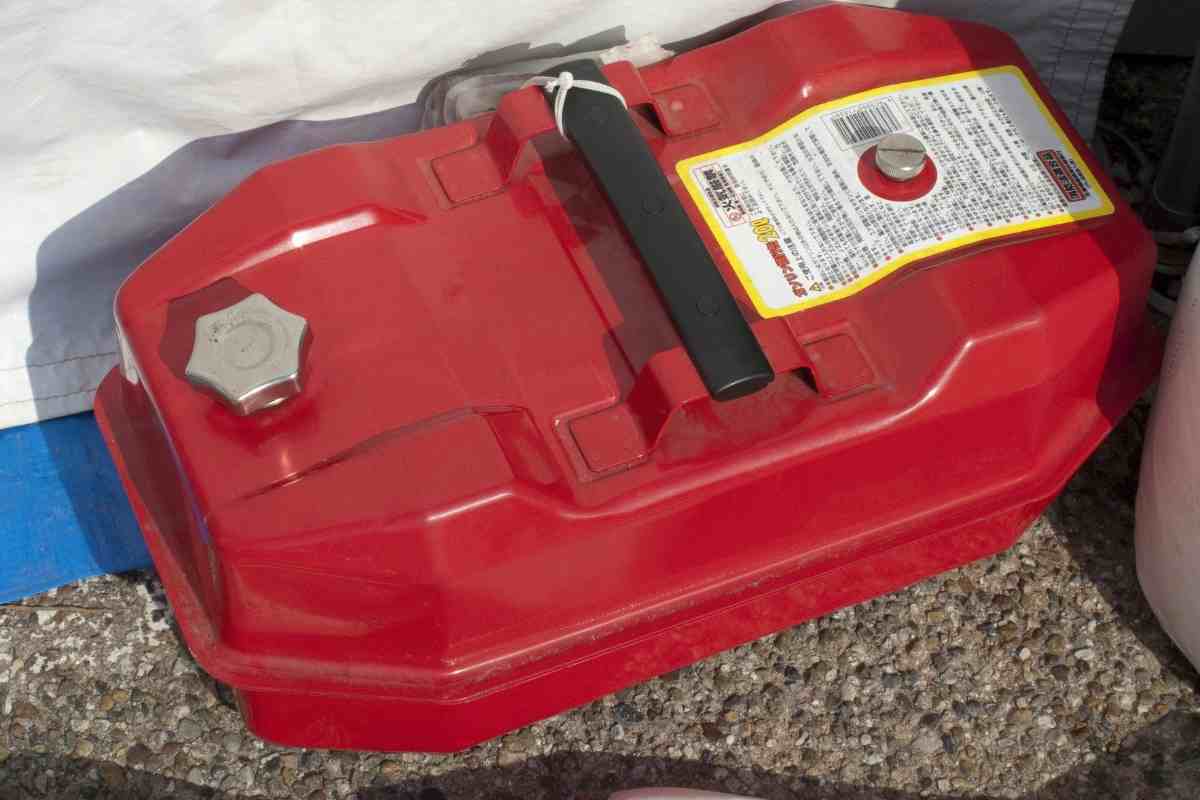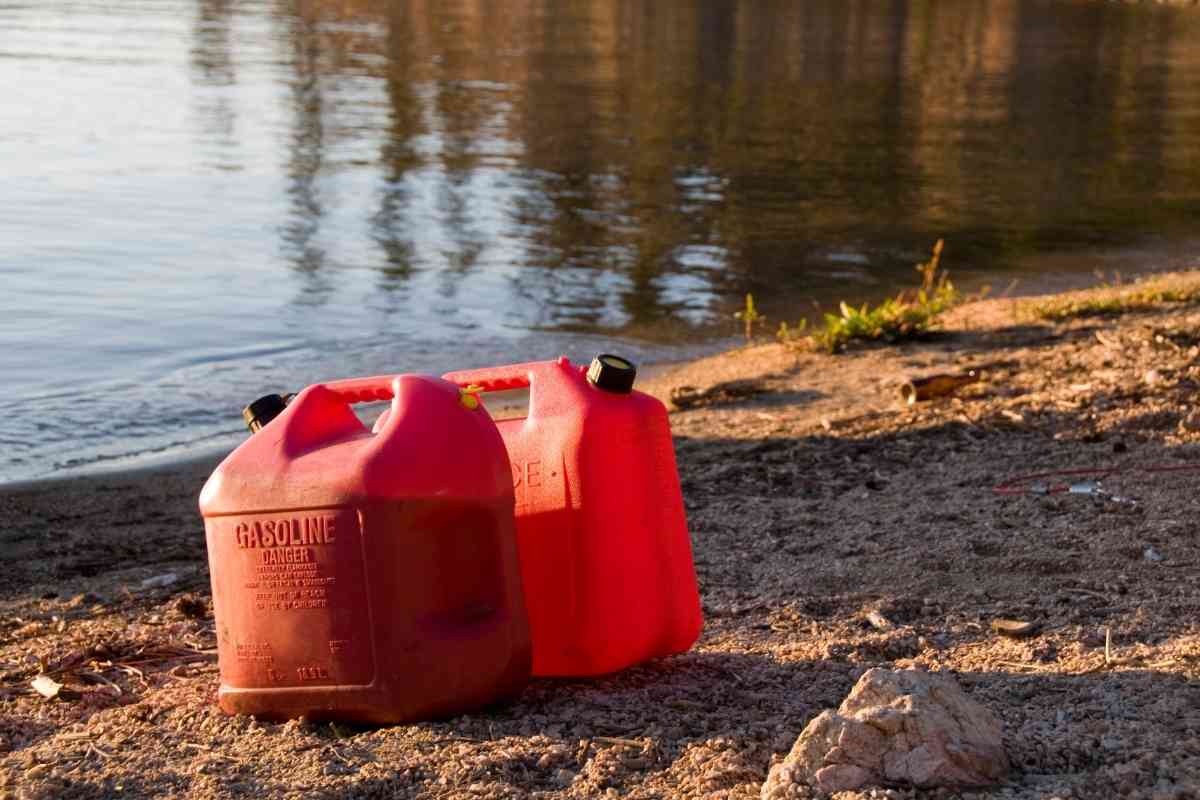How Big Is A Pontoon Boat Gas Tank?
Pontoon boats are very versatile, which is perhaps one of the reasons they are so popular for both fresh and saltwater activities nationwide. However, you need to know just how much gas a pontoon boat can carry in order to feel confident that you’ll be able to enjoy the activity you want to your boat.
How big is a pontoon boat gas tank?
A pontoon boat gas tank generally ranges between 12 gallons and 35 gallons, although larger boats may be equipped with 50-gallon tanks, and smaller ones may have tanks as tiny as 6 gallons.
Here’s what you need to know about how big pontoon boat gas tanks typically are, how big of a gas tank you will likely need for whatever activity you are going to do, and options in increasing your fuel capacity.
How Big Is A Pontoon Boat Gas Tank?
The size of a pontoon gas tank varies dramatically. Expect fuel capacity between 12 gallons and 50 gallons, depending on the size of the boat.
Very large pontoon boats sometimes have even larger fuel tanks.
Pontoon boats tend to be fairly efficient with the use of their gas when not driven at high speeds or upgraded to very high horsepower motors. That said, many pontoon boat owners want to carry more gas.
Thankfully, you have options when it comes to making use of more fuel on your pontoon boat.

How Much Gas Do You Need For Your Pontoon Boat?
It is fairly typical for the average pontoon boat to be equipped with about a 100 horsepower engine.
An engine of this size will typically use between 5 and 6 gallons of fuel per hour when the boat is at its full cruising speed.
Needless to say, if you only have a 12-gallon fuel tank, you can run through gas in only a couple of hours.
You’ll eat up gas quickly when performing activities like tubing or water skiing. If all you want to do is get out on the water and anchor out off of an island or beach and go home again, you may not mind a 12-gallon fuel tank.
However, if you want to use your pontoon boat to tow things behind the boat, troll for fish, or travel at any kind of distance, you’ll probably want more gas.
Therefore, most people who want to use their pontoon boats for diverse purposes will choose between 30 and 50 gallons for a pontoon boat of around 20 feet.
If you find yourself frequently having to think about how much fuel you’re using or refuel in the middle of a trip, it is probably time to upgrade your fuel tank.
Solutions If Your Fuel Tank Is Too Small
You’ll be glad to know that there are a number of things that you can do to augment your fuel supply. Here are a few options:
Carry Gas Cans
Some pontoon boat captains choose to simply carry extra gas cans and refuel while they’re on the water.
This may be the most affordable solution and the easiest. If you find that you don’t have enough gas, simply bring a couple of extra cans with you on your next trip.
However, there are some very important issues with carrying extra gas cans:
- Risk in carrying gas. Carrying gas cans can put your boat at risk, particularly if you want to fire up the grill or have smokers on board. Even sitting in direct sunlight or very high temperatures can make the gas can at risk of leaking or exploding.
- Risk in refilling. Pouring gas on a rocking pontoon boat comes with some obvious risks. While pontoon boats tend to be more stable than many other boats of their size, you may find that they are not stable enough to refuel on the go.
- Frustrations in refilling. While you may be carrying enough gas on board to power your boat for several hours at full throttle, if you have to stop periodically to refill the tank, you will likely have an annoying trip.

Replace The Tank
Simply replacing your gas tank is a very straightforward way to increase your fuel storage capacity. Replacement tanks are available for nearly all of the most popular types of pontoon boats.
Generally moving up to a larger fuel tank, say up to a 30-gallon tank, will cost you around $350 for the part and more for installation. However, installation is straightforward and if you don’t mind fiddling with it yourself, you will likely be able to take care of installation on your own.
The advantage of replacing the tank is that you won’t have to do a lot of work to install additional fuel lines and your engine will be able to draw from the same fuel line continuously.
Furthermore, you won’t have to give up much storage space since the new fuel tank can generally occupy the same space as the old one.
Add An Additional Tank
There are a lot of advantages in outfitting your pontoon boat with an additional tank. You will get a greater fuel capacity, which is probably your primary goal.
However, you will also have the security blanket in that if anything goes wrong with one fuel tank, you’ll still have another.
If your boat is already equipped with a 6 or 12-gallon tank, you can add another 20-gallon or 30-gallon tank for a total capacity of around 25 or 40 gallons.
It isn’t particularly difficult to install a second fuel tank and rig it so that your engine can pull from either tank as needed.
However, you will likely find this kind of installation a bit more difficult than simply replacing the tank. It will also take up a bit more room in your pontoon boat to carry two different tanks.
If your pontoon boat already has two tanks, adding a third may have a significant downside when it comes to storage.
Why Do So Many Pontoon Boats Come With Too Small Of A Gas Tank?
If you are shopping for your first pontoon boat, you may be frustrated to realize how small the tanks often are. Two 6 gallon tanks are often standard for a 20-foot boat, which won’t get you far.
The answer is that pontoon boats are often viewed as casual cruising or party boats, for which they don’t require much gas.
Because pontoon boats are so typically used in calm water and lakes that are near a marina or dock, it may be assumed that the pontoon boat can easily be refilled when necessary.
A good solution may be to consider buying a used pontoon boat. Adding a new fuel tank to increase capacity or adding an additional fuel tank are some of the most popular add ons for a pontoon boat.
Therefore, if you are buying a used boat, there is a fairly good chance that it may already come with a larger gas tank that is more likely to fit your needs.
How Much Fuel Does Your Pontoon Boat Need?
How much fuel you need for your pontoon boat completely depends on what you’ll be doing with it.
Here are some examples of common activities for a 20-foot pontoon boat with a 100 horsepower engine and how much fuel you’ll likely need for a day out on the water:
- Short trips and anchoring out. One of the most popular things to do with a pontoon boat is to make a short trip to a nearby island, beach, or scenic area, anchor out, and enjoy swimming around the boat and generally being in the water. You probably only need about ten or twelve gallons in order to get out to a nearby location and home again.
- Fishing. If you want to troll at relatively low speeds to catch fish, you won’t eat up nearly as much gas as if you have the engine opened up at full throttle. On the other hand, you will use more gas than if you are just taking a little trip and anchoring out. Typically around 15 to 20 gallons will occupy your needs when you are using your pontoon boat for fishing.
- Towing water skiers, wakeboarders, or tubes. Depending on who you’re towing and what kind of sport they’re doing, you may need to open the engine up all of the way or go just fast enough to get the person up while avoiding getting on a plane. Therefore, the amount of fuel that you need will vary. However, you can expect to use the most gas in this way. You’ll probably want at least 30 to 50 gallons available to have a fun day out on the water towing.
Have Enough Fuel To Do What You Want To Do
Getting out on the water in your pontoon boat is a blast, but you need to be confident that you have enough fuel to do everything that you want to do.
Think carefully about the activities you want to enjoy and choose a fuel tank for your pontoon boat that will meet your needs.
